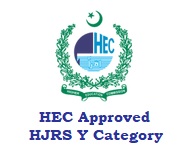Geopolitics and Combating Transnational Organized Crime: A Case Study of Russia and Cyprus
Abstract
This study examines the relationship between Russia and Cyprus, focusing on the interplay of geopolitics and the challenge of combating transnational organized crime (TOC). The research explores the strong connections between the two countries, encompassing factors such as tourism, religion, and historical ties. It investigates the presence of transnational organized crime and money laundering activities between Russia and Cyprus, emphasizing the impact of political tensions on formal and informal institutions. Employing Robert Putnam's two-level game thesis, the paper analyzes the geopolitical dynamics between the two nations in addressing TOC through treaty-signing measures. Furthermore, it provides a preliminary analysis of government responses to these issues, shedding light on the complexities of international cooperation and the challenges posed by the nexus of geopolitics and criminal activities in a globalized world. The findings highlight the importance of international cooperation and the challenges posed by the nexus of geopolitics and criminal activities in a globalized world. The prevalence of money laundering and organized crime activities between Russia and Cyprus underscores the significance of government responses. The bilateral agreement signed between the two countries demonstrates their commitment to cooperation in combating crime, including drug trafficking, human trafficking, illegal migration, and firearm possession. While challenges persist, the formal agreement and ratification signify progress in addressing transnational crimes.
Downloads
References
Cheloukhine, Serguei. 2008. "The roots of Russian organized crime: from old-fashioned professionals to the organized criminal groups of today." Crime, Law and Social Change 50 (4-5):353-374.
Chlebowicz, Piotr. 2021. "Organised Crime as a Political Influence Tool of the Russian Federation." Internal Security 13 (2):175-186.
CIA, Central Intelligence Agency. "CIA FACTBOOK."
da Conceição-Heldt, Eugénia, and Patrick A Mello. 2017. "Two-level games in foreign policy analysis."
Delanoe, Igor. 2013. "CYPRUS, A RUSSIAN FOOTHOLD IN THE CHANGING EASTERN MEDITERRANEAN." MERIA Journal 17 (2).
Europol. 2004. 2004 European Union Organised Crime Report: Office for Official Publications of the European Communities.
Finckenauer, James O, and Yuri A Voronin. 2001. The threat of Russian organized crime. Vol. 2: US Department of Justice, Office of Justice Programs, National Institute of Justice Washington, DC.
Galeotti, Mark. 2017. Crimintern: How the Kremlin Uses Russia's Criminal Networks in Europe: European Council on Foreign Relations.
Godson, Roy, and Phil Williams. 1998. "Strengthening cooperation against transnational crime." Survival 40 (3):66-88.
Ištok, Robert, and Dominika Plavčanová. 2013. "Russian geopolitics and geopolitics of Russia: phenomenon of space." European Journal of Geopolitics 1:61-94.
Kasım, Kamer, and Elif Eren Kasım. 2017. "Taiwan-Cyprus-Kosovo Cases: Differences And Similarities."
Kaufman, Joyce P. 2013. Introduction to international relations: Theory and practice: Rowman & Littlefield Publishers.
Kegö, Walter, and Alexandru Molcean. 2011. Russian speaking organized crime groups in the EU: Institute for Security and Development Policy Stockholm.
May, Ruth. 2017. "Cyprus is at the center of a circle of corruption surrounding Trump." Dallas News. https://www.dallasnews.com/opinion/commentary/2017/12/15/cyprus-center-circle-corruption-surrounding-trump.
Melakopides, C. 2017. "On the “Special” Nature of the Russia–Cyprus Relationship." Russian International Affairs Council.
Melakopides, Costas. 2016. Russia-Cyprus Relations: A Pragmatic Idealist Perspective: Springer.
Putnam, Robert D. 1988. "Diplomacy and domestic politics: the logic of two-level games." International organization 42 (3):427-460.
Siegel, Dina, Henk Bunt, and Damián Zaitch. 2003. Global organized crime: trends and developments. Vol. 3: Springer Science & Business Media.
Siotis, Jean. 1969. "Chypre et les grandes puissances 1955-1968." Revue française de science politique 19 (6):1238-1246.
Sterling, Claire. 1994. "Thieves' World." The Threat of the New Global Network of Organized Crime, New York, Simon Schuster.
Vamvakas, Petros. 2017. "Russia-Cyprus Relations: A Pragmatic Idealist Perspective by Costas Melakopides." Mediterranean Quarterly 28 (2):146-148.
Williams, Phil. 2014. Russian organized crime: Routledge.
Wilson, AC. 2010. "Putnam’s Two-Level Game: Case Studies of Serbianand Russian Reactions to the Kosovar and Chechen Independence Movements." ABD: The Ohio State University, Gratuade Program Slavicand East European Studies.
Yılmaz, Muzaffer Ercan. 2010. "Ethnic Identity and Ethnic Conflicts." Akademik Bakış Dergisi 21:1-22.
Downloads
Published
License
Copyright (c) 2024 the Authors

This work is licensed under a Creative Commons Attribution-NonCommercial 4.0 International License.






